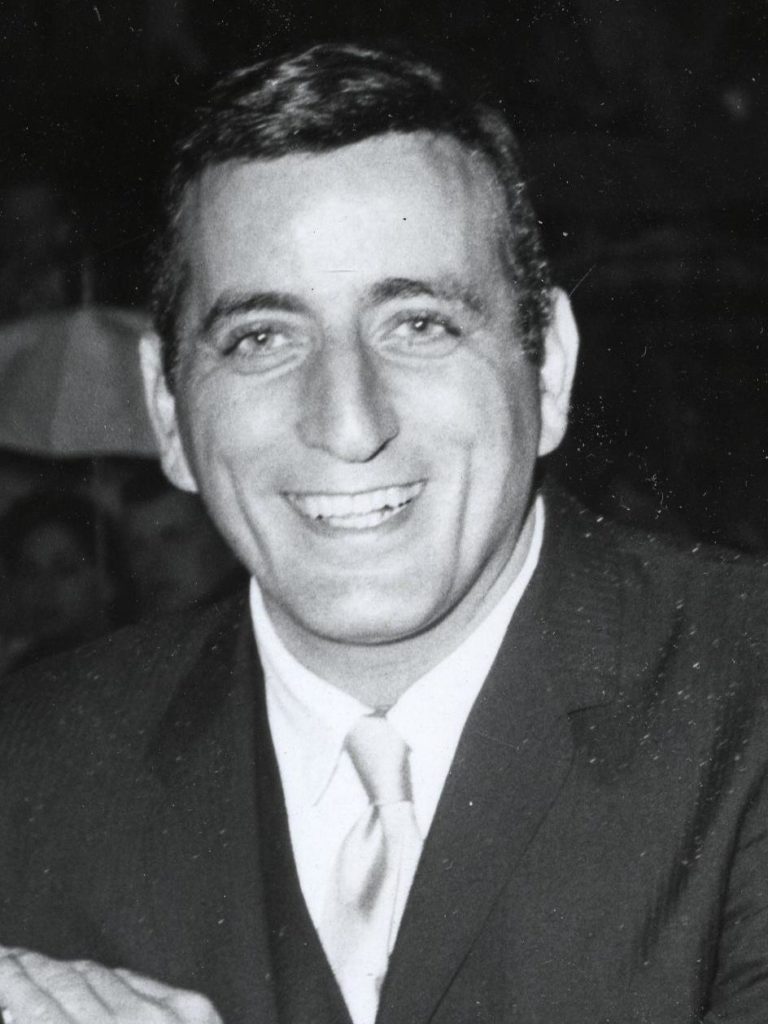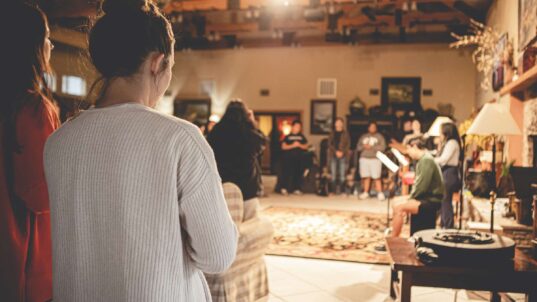
Tony Bennett, by City of Boston Archives from West Roxbury, US, CC BY 2.0
He was born into poverty in 1926 in New York City to an Italian immigrant father and a mother who was born in the U.S. soon after her parents immigrated. When he could go to school, he studied art and music, but he never did complete high school.
At age 18, he was drafted to serve in the Army and was shipped to Europe toward the end of World War II, where he faced several formative experiences. While it was clear that Germany would lose the war, the terror of several near-death experiences gave him a taste of the inhumanity of armed conflicts.
When his unit entered Germany, they were assigned to liberate one of the auxiliary concentration camps of Dachau. All of the children and women sent to the camp had already been killed, and the day before their arrival half of the men had been killed. This was another shattering moment for him.
When the war ended, he was assigned duty as part of the occupying force in Germany. There he ran into a Black soldier who happened to be an old friend, he invited his friend to eat Thanksgiving dinner with him in the mess hall. However, he found himself blocked by an enraged officer who demoted him in rank, cutting his corporal stripes off his sleeve, and assigned him to reinterment duty, digging up corpses of fallen allied troops for reburial. As he would later write, “It was actually more acceptable to fraternize with the German troops than it was to be friendly with a fellow Black American soldier!” This was another formative time in his life.
When he returned to the U.S., he became active in the civil rights movement. He was one of those who marched at Selma, Alabama. By this time, Tony Bennett had become one of America’s greatest singers. He was asked to sing to rally the marchers. His stage was constructed out of empty coffins from a local funeral parlor. After the march, he was shuttled to the airport by Viola Liuzzo, who was subsequently murdered by Klan members.
Tony Bennett’s death is a reminder to us all of how great America can be. His admirable life reminds us of how crucible moments can define us as persons. He used the experiences from World War II to shape his beliefs and his commitment to justice.
Just imagine if we all listened to the moments of conscience that call us to take a stand against injustice. Tony Bennett’s life is a lesson for us all. We should learn to listen to those moments of conscience in our own life experiences and stand up to injustice, even when that means standing up to the powers that be.
* * *
“Regardless of religion or race or ethnic background we are all human and we are all on this planet together. So what better reason do you need to not tolerate any form of violence against another human being?” – Tony Bennett
This is part of our “Just Imagine” series of occasional posts, inviting you to join us in imagining positive possibilities for a citizen-centered democracy.


